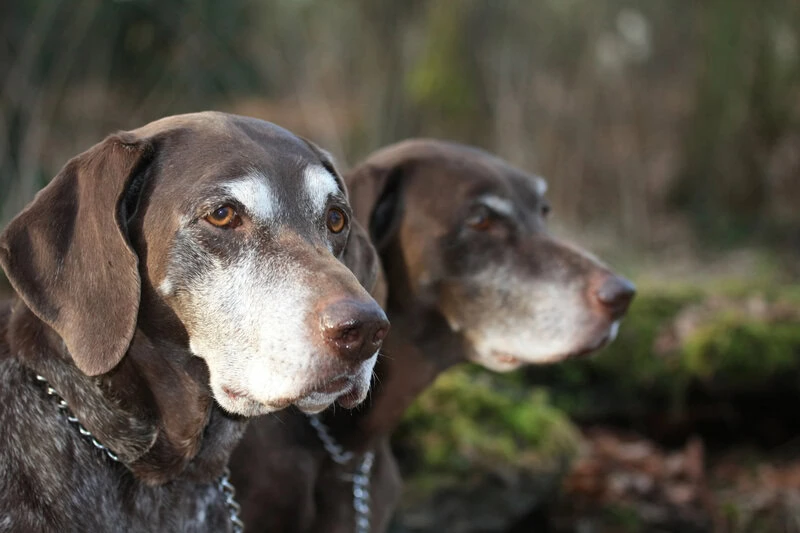
Dogs have different needs as they get older. Like humans, metabolisms slow down, joints may ache or deteriorate, and energy levels wane. You may also notice a beloved senior dog has an increase of white fur (there’s gray) around the muzzle, and they seem a bit stiffer when they sit, lay down, or get back up.
Yes, age seems to creep up on us all, but honoring our dog’s aging process keeps them healthier and more comfortable.
Here are some things you can do to nurture your dog as it ages, with special attention to its health, comfort, and well-being.
The first step is recognizing your dog is approaching their senior years, which can creep up on you pretty quick. While purebred dogs tend to have fairly “average” life spans, mutts and hybrids can be less predictable. In that case, vets and dog trainers tend to predict age spans by dog size.
Here is a general approximation of how old a dog is when they’re officially considered a senior (MetLife Pet Insurance):
So that gives you a general prediction.
Dogs usually need to visit the vet once a year for an annual wellness checkup. If you adopted your dog as an adult from a shelter, your dog might need to be treated like a senior a little earlier if you don’t know their health history, if their teeth are in early decay or missing, or if they were brought into the shelter in bad/malnourished shape.
If your dog falls into the senior bracket, bring that up at your next appointment. Your vet knows better than anybody what your dog needs based on their health history and previous issues, illnesses, etc.
Older dogs are more prone to:
Once a dog demonstrates clear signs they have entered the senior stage, we recommend setting vet visits two times a year so any issues are caught sooner rather than later.
Your dog’s metabolism is likely slowing down. Some dogs remain active and playful well into their senior years, so diet is a great topic to discuss with the vet, based on your dog’s age and energy levels.
However, if your dog is gaining weight or showing signs of slowing down, switch your dog food to one specifically formulated for seniors. Senior dog food has fewer calories, less protein, and carbohydrates, supporting easy digestion and healthy weight management. If you love to give your dog treats, make sure you’re giving them senior-friendly treats rather than sweet/fatty versions that contribute to senior dog health issues.
Depending on your dog’s breed, health history, and any current ailments/issues, your veterinarian may recommend adding a hip/joint or other supplements.
Hopefully your dog is supplied with regular chews and treats that support dental health. While senior dogs tend to chew on things far less than their younger counterparts, they usually still enjoy a good chewing session occasionally (unless their teeth/gums are in poor shape).
That said, their teeth can develop tartar, while gums are susceptible to gingivitis. Over time, older dogs' teeth can wear down, break or fall out. You and your vet should carefully monitor this via regular annual visits and routine at-home dental hygiene sessions.
If you haven’t purchased a new dog bed in a while or thought about outdoor shade, water, etc., now’s the time. Senior dogs may be ready for:
By paying attention to your dog’s body language, you’ll learn so much about how aging is affecting their body. By honoring those cues, you’ll be supporting them on every level.
Of course, we can’t know what our pets are thinking or feeling. However, watching their body language and observing how they respond to specific scenarios, stimulation, events, etc., can tell us quite a bit about how they’ve changed and what they need now.
Yes, your older dog may have less energy, but that doesn’t mean they never want to get out anymore. You may also notice your dog seems more anxious, and that’s also normal - especially if they’re adjusting to vision/hearing changes.
Adapting your daily routine to support a senior dog’s needs may look like:
It’s not always easy to acknowledge our dogs are aging. It happens right before our eyes, and that subjective lens may prevent you from seeing what they need or are asking for. Would you like some expert advice on how to make some lifestyle changes that support your aging dog?
Scheduling a one-on-one consultation or home visit with a certified dog trainer is a wonderful way to support senior dogs and give them everything they need to age well. Contact Alternative Canine Training to schedule a session.